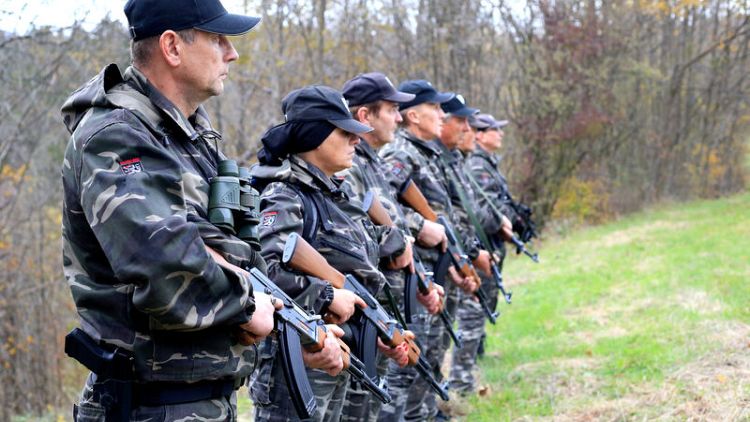By Marja Novak
LJUBLJANA (Reuters) - The Slovenian government approved legislation on Tuesday that will prohibit paramilitary groups, after a group led by a nationalist politician began conducting border patrols in the woods in recent months.
"Guarding the state border is an exclusive responsibility of the police," the government said in a statement, adding paramilitary groups were obstructing the work of the police and causing alarm and fear.
Two weeks ago Reuters reported that a more than 50-strong group, dressed in camouflage uniforms and armed with air rifles, were patrolling a border zone between Slovenia and Croatia where the group's leader said illegal migration is rife.
The leader, Andrej Sisko, who heads a fringe nationalist party, Gibanje Zedinjena Slovenija, had said authorities were failing to protect Slovenia against what he saw as a migrant threat.
Under the legislation approved by the cabinet and now due to be passed by parliament in coming months, civilians will be banned from conducting patrols of the border area and obstructing the work of the police.
They will be prohibited from using masks, uniforms or objects that resemble weapons in such a way as to give the impression they are state or army officials. The fine would be between 500 and 2,000 euros ($550 to $2,200) per person.
Anti-immigrant sentiment in Slovenia and other ex-communist European Union countries has risen sharply since 2015, when more than a million asylum seekers passed through eastern Europe en route to richer countries further north and west.
The overland route into Europe across the Balkans has largely been shut for the past three years. But according to the police the number of migrants crossing illegally from Croatia to Slovenia - where a razor-wire fence has been erected along stretches of the border since 2015 - rose to 14,066 in the first ten months of this year from 8,186 in the same period of 2018.
(Reporting by Marja Novak; Editing by Peter Graff)
